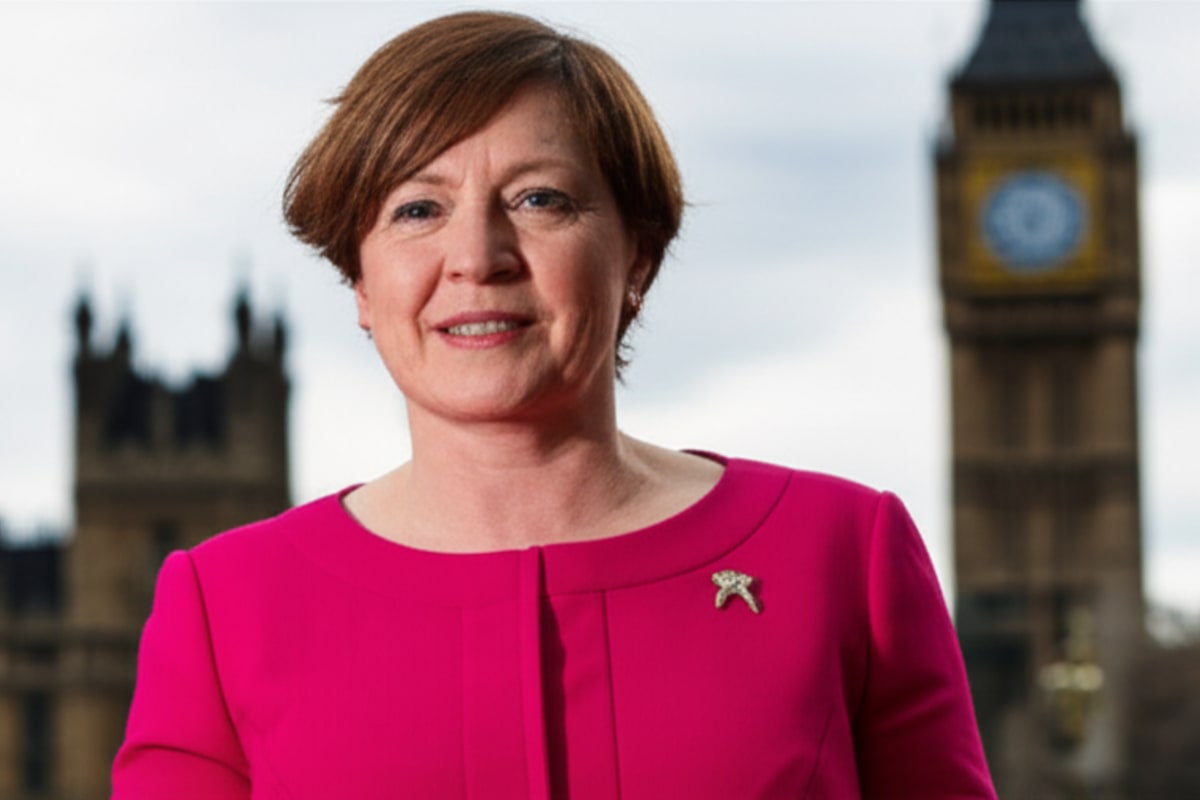Labour Deputy Leader Race Heats Up: Phillipson Launches Bid

The race for the Deputy Leader of the UK Labour Party has intensified, with Shadow Education Secretary Bridget Phillipson MP emerging as the first cabinet minister to formally declare her candidacy
Background
Phillipson launched her campaign with a clear message, emphasizing her working-class roots and identifying herself as "a proud working-class woman
" This strategic positioning aims to resonate with a significant portion of the Labour electorate and establish her credentials within the party's power structure
Her campaign launch included pledges to focus on tackling child poverty and improving access to education for disadvantaged communities
The announcement has prompted immediate responses and strategic maneuvering from potential rivals.
Health Secretary Wes Streeting, a prominent figure often touted as a future leader within the party, has adopted a more cautious approach
Sources close to Streeting suggest he is carefully weighing his options before making any formal announcement
While expressing a preference for a female deputy leader, Streeting has refrained from explicitly endorsing Phillipson, citing a desire to assess all candidates and their platforms
This calculated ambiguity allows Streeting to maintain flexibility, avoid alienating potential competitors, and potentially position himself as a unity candidate later in the race
He has reportedly been consulting with key figures within the party to gauge the level of support for his own potential bid
Streeting's emphasis on the need for a deputy leader from outside London highlights the significant regional considerations within the Labour party, a factor that could prove pivotal in determining the election's outcome
With many traditionally Labour-held seats now in Conservative hands, reconnecting with voters outside of London is seen as crucial
Streeting's recent media appearances promoting new NHS league tables suggest a strategic effort to maintain his public profile and demonstrate his dedication to key policy areas while navigating the complexities of the deputy leadership race
His comments on the necessity of a 'campaigner in chief' capable of expanding the Labour party's appeal and solidifying its voter base underscore the deputy leader's crucial role in electoral success
The upcoming Scottish and Welsh elections, coupled with the impending general election widely expected within the next two years, add a sense of urgency and heightened stakes to this internal political struggle
Phillipson's representation of a constituency in the North East of England presents a compelling contrast to the predominantly London-based candidates and leadership figures
This geographical diversity could significantly influence votes, particularly from constituencies seeking enhanced regional representation and a stronger voice within the party leadership
The emphasis on her working-class background adds a powerful narrative to her campaign, potentially resonating with voters who feel underrepresented in mainstream politics and disconnected from the perceived metropolitan elite
The significance of this internal Labour party contest extends far beyond the UK's borders.
The Labour party's performance directly impacts the UK's political landscape, influencing foreign policy, economic relations, and social policies with global resonance
For readers in Southeast Asia, the outcome of this race could indirectly affect trade relationships, development aid initiatives, and even the UK's position on issues such as climate change, regional security, and international human rights
Regardless of who ultimately prevails, the Labour party's stated commitment to social justice, multilateralism, and international cooperation is likely to continue shaping these areas
The unfolding events highlight the intricate interplay of ambition, strategy, and regional representation within the Labour Party as it seeks to regain public trust and electoral dominance
The race is expected to intensify as more candidates enter and present their visions for the party's future.
Shadow Cabinet ministers Lisa Nandy and Yvette Cooper are also rumored to be considering a run
The focus on experience, political strategy, geographic diversity, and ideological alignment suggests a closely contested vote, keeping the UK political scene highly engaged and generating significant media attention
The candidates will likely participate in a series of hustings events and televised debates in the coming weeks, giving party members and the wider public an opportunity to assess their qualifications and policy positions
Conclusion: A Contested Race with Far-Reaching Consequences
Understanding the dynamics of this internal contest is crucial for anyone following UK politics, considering its potential impact on the next UK general election and wider international relations
The emphasis on working-class representation underscores the ongoing internal debates within the Labour Party and its efforts to connect with a diverse electorate across different regions and socioeconomic backgrounds
The role of gender in the race also reflects evolving political dynamics both in the UK and globally, with the prospect of a female deputy leader further highlighting the changing face of British politics
The outcome will have significant implications, not only for the Labour party itself, but also for the UK's relationship with the world, including its engagement with Southeast Asia, its approach to international trade, and its commitment to addressing global challenges
The contest is far from over
The coming weeks and months will see a fierce battle for votes as candidates try to convince party members of their suitability to lead the party into the future and contribute to a revitalized Labour Party capable of challenging the Conservative government
